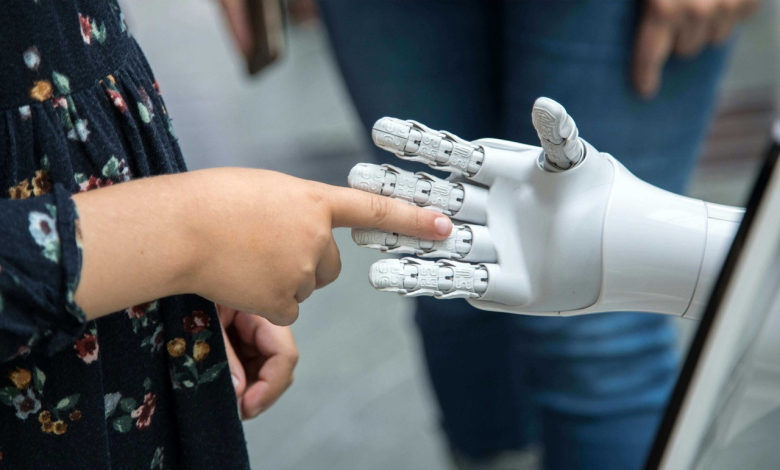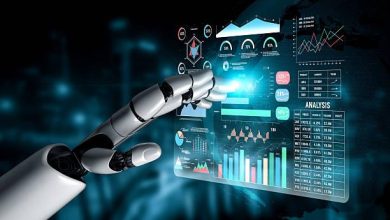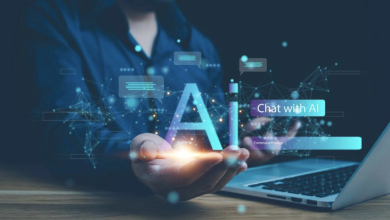
What raising children can teach us about raising intelligent systems and why the future of AI ethics depends on human leadership
The Parallel Between Parenting and Programming
Raising a child and developing a machine both begin with potential — a spark of ability waiting for form. The first task in either case is not control, but cultivation. Parents and engineers both set the boundaries of learning, deciding what data, experiences, and examples will shape intelligence.
A family dinner table is not so different from a design lab. Values are transmitted, sometimes deliberately, sometimes by accident. And as children — or systems — begin to act independently, the questions become eerily similar: What should they be allowed to decide? How do we know they’ve learned the right lessons?
AI is teaching humanity something uncomfortable about itself. Every algorithm reflects the priorities of its makers. Every parenting choice does the same. Both are mirrors held up to our ethics.
Values Before Code
In 2016, a recruitment algorithm trained on past résumés learned to prefer male applicants because the company’s historical data reflected an old bias. The engineers fixed the code—but the bias lived on in the dataset. In parenting, the equivalent mistake is assuming children will “figure it out” by watching adults who never question their own behavior. The fix isn’t a rule; it’s reflection.
Before a parent can teach reading or manners, they model what matters. A child learns honesty from how adults tell difficult truths. They learn compassion from how mistakes are handled. The same invisible modeling happens when teams build intelligent systems.
Ethical AI doesn’t start with technical safeguards; it starts with the culture that writes the safeguards. An organization that rewards speed over reflection will bake impatience into its algorithms. One that treats people as metrics will create machines that optimize for numbers, not nuance.
In this sense, every dataset is a family story. It captures what we notice and what we ignore. Just as a child’s worldview depends on which voices are heard at home, a model’s fairness depends on whose data it has been fed. Ethics, human or artificial, is taught long before it is tested.
Boundaries and Autonomy
In corporate governance, many firms use a “sandbox” model for emerging technology—limited environments where innovation can stretch but not break. Parents do something similar when they let a child walk to school alone for the first time. The point isn’t surveillance; it’s progressive trust. Each boundary tests readiness while signaling belief in growth.
Ask any parent what scares them most and the answer is rarely the toddler years; it’s adolescence — that uneasy stage between dependence and freedom. The same stage now defines our relationship with AI.
When systems begin making decisions in hiring, health care, or finance, the question is no longer can they? but should they? Too much control, and innovation withers. Too little, and unintended harm spreads fast.
Leaders face the same paradox as parents: how to create independence without losing alignment. The solution isn’t tighter rules but wiser trust. A parent loosens the reins gradually, testing judgment before granting freedom. In AI governance, that means small-scale pilots, transparent oversight, and accountability that expands with capability. Autonomy is earned, not assumed.
Boundaries, when set with intention, are acts of care. They keep growth pointed toward maturity rather than chaos.
Learning Through Feedback
In education, teachers have long understood that timing matters as much as content. Correcting a child mid-sentence shuts down curiosity; waiting too long lets confusion harden. Leaders training teams—or algorithms—face the same challenge. Feedback that’s immediate but compassionate accelerates growth. What makes it humane is tone: a belief that the learner, human or machine, can still get better.
Machine-learning engineers retrain models constantly; families do, too, through apology and repair. The best learning loops are emotional as well as informational. They remind both sides that mistakes are not terminal events but chances to reconnect. Systems built on the same logic could treat error logs as invitations to understanding, not punishments for failure.
A child learns gravity by dropping the same spoon a hundred times. Feedback, not instruction, builds understanding. Machines learn this way too. Yet the quality of feedback determines the quality of intelligence.
Human feedback carries tone, patience, and context. Machines receive numbers. Between those two forms of teaching lies the moral gap of technology.
If an algorithm is punished only for inaccuracy, it learns fear of error, not curiosity. If rewarded solely for precision, it forgets compassion. The best parents — and the best leaders — create feedback loops that balance correction with encouragement. They teach not just performance, but reflection.
Imagine if our AI systems were trained on a model of growth that valued repair after failure, the way good families value apology after conflict. Machines might then learn what every child eventually must: that mistakes, when faced honestly, deepen understanding.
Culture, the Invisible Teacher
In some Asian traditions, learning is communal and lifelong; in much of the West, it is individual and time-bound. Those philosophies appear again in how nations approach AI—collective responsibility versus competitive advantage. The technology will mature differently under each worldview. Just as children carry the moral DNA of their upbringing, machines will reflect the cultural DNA of their makers.
Every family operates inside a culture — sometimes nurturing, sometimes constraining. It tells us what success looks like, how conflict is handled, and which emotions are allowed in public.
AI is being raised inside cultures too: corporate cultures, national cultures, and the global tech culture that prizes disruption. In some places, innovation is a race; in others, it’s a negotiation. These cultural codes silently shape how we define “ethical” and “responsible.”
Consider how differently societies view privacy or collective welfare. A model trained under one set of assumptions may violate another’s moral norms. There is no universal algorithm for virtue. Which means that “ethical AI” is not a finish line — it’s a mirror of collective maturity.
The culture that raises intelligence determines the civilization that inherits it.
Responsibility as Leadership
Real accountability isn’t a department—it’s a culture. The best teams don’t hide ethical debates in policy documents; they practice them out loud. Before releasing a new model or product, they ask questions that sound almost parental: Have we thought about how this might hurt someone? What happens if it succeeds too well? This humility—rare but teachable—is the moral software of any system that lasts.
Parenting teaches a humbling truth: guidance is not control; it is stewardship. The goal isn’t obedience but character.
Leaders face the same challenge. The smartest systems are useless without shared purpose. Ethical alignment can’t be mandated by compliance forms; it grows through dialogue and example.
True responsibility lies in modeling what accountability looks like. That means admitting uncertainty, inviting dissent, and creating environments where the phrase I don’t know yet is seen as strength, not weakness.
When leaders treat intelligence — human or artificial — as a partner to be guided rather than a tool to be exploited, they transform oversight into mentorship. And mentorship scales better than micromanagement.
Beyond Algorithms
Human intelligence evolved through relationships — messy, emotional, iterative. Artificial intelligence evolves through data — clean, vast, efficient. Between them lies a gap no processor can close on its own.
To bridge it, we’ll need to bring the empathy of parenting into the architecture of progress:
- Teach systems why, not just how.
- Design rewards that reflect understanding, not mere accuracy.
- Measure success by the wellbeing of the people affected, not only the performance of the code.
The algorithms of the future will inherit whatever virtues we model today. The question isn’t whether machines will think like humans — it’s whether humans will think carefully enough to raise machines wisely.
The Civilization Mirror
Every generation inherits tools more powerful than its predecessors’. Fire, printing, electricity, code. Each time, the question repeats: can wisdom scale with capability? Parenting offers an old answer to a new dilemma—it teaches that strength without empathy collapses, that intelligence without moral direction turns cruel. The machines we build may never love us back, but they can still carry our values forward if we choose them carefully.
Parenting has always been civilization’s quiet technology. Through families, values become habits, and habits become history. The same dynamic will shape AI.
How we raise intelligence will reveal what we truly value: autonomy or obedience, speed or reflection, mastery or wisdom. Every generation answers differently, and each answer writes itself into both culture and code.
Maybe the hardest part of raising any intelligence is learning when to let go — not because we’ve lost control, but because we’ve taught enough for it to act with conscience.
Leadership in the age of AI will not be measured by how tightly we manage our creations, but by whether they carry our best lessons forward.



